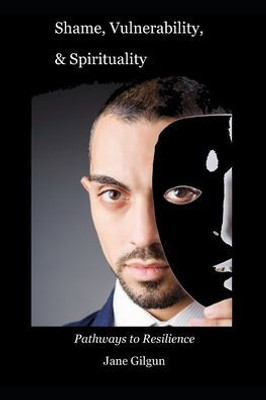In this book, I explore the meanings of spirituality and shame and the various ways we seek connection, love, and meaning. Spirituality is a sense of goodness, love, stability, connection, and meaning. Human beings are programmed to seek this lovely state. Shame is a sense of believing we are worthless and unlovable. If we have shame, we experience vulnerability which is a sense of being fragile and at risk for several types of suffering, including anxiety, depression, headaches, dread, and general body tension, especially in the pits of our stomachs and our hearts. Shame can crowd out goodness, love, and other spiritual states that we want so badly. When we experience shame, we are left feeling sad and alone. Social norms and personal experiences set us up for shame. Social norms tell us what we are supposed to believe, how we are supposed to act, and how we are supposed to look. If we fail in any of these, norms tell us we are defective, and we become vulnerable. Shame is on the horizon. Media, such as advertisements, internet posts, video games, and films not only teach us what society expects of us, but also informs us of consequences if we live or don't live up to expectations. We internalize these expectations and make them our own. On the personal level, parents, siblings, friends, teachers, clergy, and other authority figures both show us and tell us what they expect of us and the consequences if we do or don't meet the standards. I begin with a discussion of how it feels to experience shame. I use the term demon as a metaphor for the self-punishing thoughts characterize shame. I show how welcoming these thoughts and listening to them transforms them from tormentors to friends. This can take a long time. Acceptance replaces fear and anxiety. The self-punishing thoughts take up less space in our minds, and we have more room for happy thoughts. In my case, the more I let go of ugly thoughts about myself, the more empathy I had for others and the more realistic appreciation I had of myself. I had always delighted in the small things, but delight came more frequently. Looking at a flower, making soup, talking to a friend became infused with a spirit of connection, love and goodness. Read the chapter, and you will see. I next tell three stories about my own shame to show that I know what it is and what it does to who we think we are. A young priest sexually assaulted me on a dance floor, a nun hugged and kissed me on a dance floor, and high school students slandered me as a slut in response to teaching I did about human sexuality in a health and family life education course. The following three chapters are about resilience, or qualities that we use to deal constructively with shame. Two are stories, and one technical piece digs deep into what resilience is. The final stories return to the theme of shame and spirituality. Shame has multiple tentacles that invade our bodies because shame becomes embedded on our neural circuits in our brains and in our central nervous system. Shame is a whole body experience that is difficult to identify, to deal with, and to transform. Shame tells us lies because shame draws from distorted views about so many aspects of what it means to be a human being. I end with chapters on the wisdom of uncertainty, which opens us to the many possible ways to think about people and events in our lives and increases our capacities for compassion and genuine interest in others and self-love for ourselves. The chapter on identities is brief and returns to theme of our innate desire for love, goodness, and meaning.
- | Author: Jane F Gilgun, Phd
- | Publisher: Createspace Independent Publishing Platform
- | Publication Date: Feb 08, 2023
- | Number of Pages: 145 pages
- | Language: English
- | Binding: Paperback
- | ISBN-10: 1539610357
- | ISBN-13: 9781539610359






